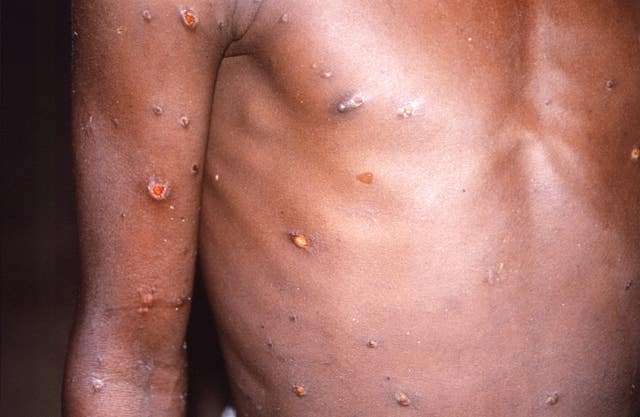UK’s monkeypox situation ‘very positive’ as cases continue to fall, says expert
Professor Neil Ferguson said vaccination and behavioural changes were likely responsible for falling infections.

The monkeypox situation in the UK is looking “very positive” as cases continue to fall, according to one of the country’s top infectious disease experts.
Professor Neil Ferguson said vaccination and behavioural changes were likely responsible for falling infections.
He told the BBC: “We’re not completely sure of exactly why. Vaccination started to be rolled out so that probably had some effect – but it doesn’t explain it all.
The Imperial College London academic, whose data was instrumental to the UK going into the first Covid lockdown in March 2020, also told the broadcaster the situation was now “very positive”.
The disease traditionally confined to parts of Africa first came to public attention in the UK in early May when cases began occurring here.
There was a peak of 60 cases per day in mid-July.
In early September there were fewer than 15 cases per day on average.
Prof Ferguson, a member of the Government’s Sage scientific advisory panel, warned against complacency against the disease.
“We have to be alert to the possibility that once case numbers are much lower and maybe people are less vigilant, then we could start to see a resurgence,” he told the BBC.
Those most at risk from monkeypox will be offered second doses of the vaccine, the UK Health Security Agency (UKHSA) said recently.
Sexual health clinics will continue to prioritise offering first doses to those at highest risk.

Modelling published on September 23 suggests vaccinating 25% of the groups most at risk could significantly reduce the risk of transmission.
The Joint Committee on Vaccination and Immunisation (JCVI) endorsed the UKHSA’s proposal to offer second doses to those at highest risk.
There are no current plans to widen the offer of vaccination beyond the existing priority cohorts, but the decision will be kept under review.
Those that are eligible for vaccination will be called by the NHS.
Second doses will be offered from around two or three months after the first dose.
As of September 20, more than 45,000 people have received a dose of the vaccine, including over 40,000 gay, bisexual and other men who have sex with men.





